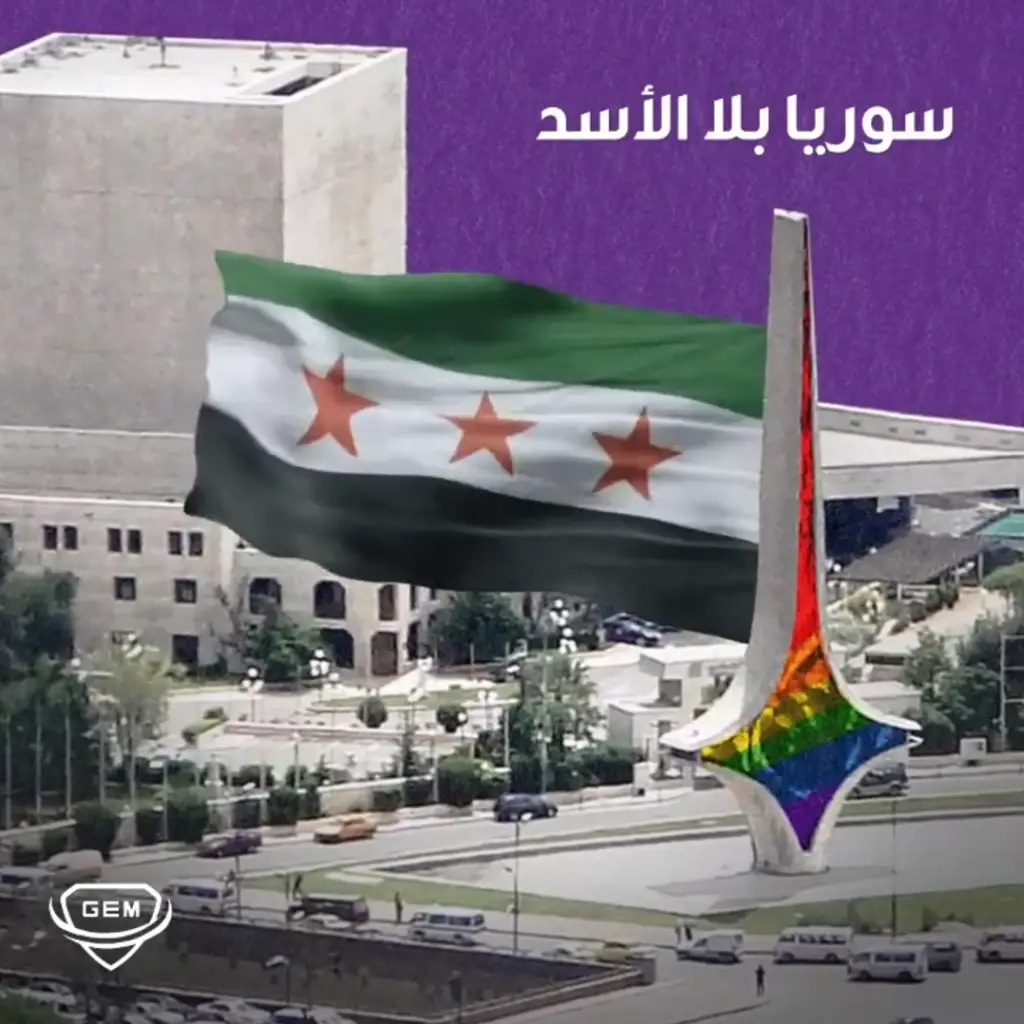After half a century of authoritarian rule and 14 years of conflict, marked by violations, forced displacement, humanitarian crises, and widespread destruction—largely the result of the former criminal regime’s actions, the Syrian people have seen the fall of the Assad regime.
As Syrians first and LGBTQIA+ second, the fall of the Assad regime represents a glimmer of hope for change. While the regime’s collapse may not be a magical solution to all our problems, it removes one of the greatest sources of violence and terror from Syria. Its fall is likely to reduce violence against marginalized groups, which we hope will improve the future.
Our stance is not simply black and white but thematic. While the fall of the Assad regime is a significant and positive step for LGBTQIA+ members, much remains to be done at both the social and policy levels even more than ever.
Although the fall of Assad brings hope and the possibility of recovery for Syrians, Syria is still in the midst of a profound humanitarian crisis. The country has been looted, destroyed, and besieged for over a decade. While much attention is focused on the political victory, we must prioritize urgent humanitarian support for Syrians and Syria’s recovery. This is not just a matter of charity but of democracy, stability, security, and transitional justice. It is difficult for Syrians to appreciate democracy when children are hungry or lack basic shelter.
The Syrian LGBTQIA+ community is at heightened risk due to the weakened security situation during this transition. The authorities have not been supportive of LGBTQIA+ rights, and societal violence remains a significant threat. Many in Syrian society have been influenced by radicalization and exposed to violence over decades of suppression, with these attitudes further exacerbated by the war and the systemic radical and extremist projects implemented throughout Syria. Under these circumstances, society has become a major source of violence against LGBTQIA+ individuals. This violence can be as harmful, if not more so, than systemic attacks such as the tragic case of a trans woman killed by her family after being deported from Türkiye
We call on local and international actors to urgently address the humanitarian needs of the LGBTQIA+ community and all Syrians. Now more than ever, it is crucial to support recovery and empowerment efforts for our LGBTQIA+ community. Advocacy and intervention strategies should focus on empowerment and strategic visibility, rather than overt public displays, as these could escalate tensions and provoke attacks from both society and authorities. We need support, empowerment, and recovery to navigate an uncertain future and ensure we are prepared for any upcoming phase, whether positive or negative.
We call for exceptions to restrictions and facilitated processes for asylum seekers who continue to face risks in Syria, particularly Syrian LGBTQIA+ individuals.
This is a critical time for us all to stand together and ensure the survival, dignity, and rights of all Syrians, particularly those most vulnerable in this ongoing struggle.
6 Jan 2025
Guardians of Equality Movement

